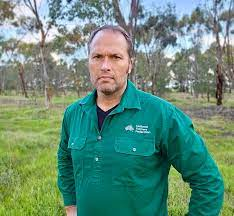Controversial new IR laws set to have a big impact in rural Australia
Luke Williams
11 December 2023, 8:20 PM
 Businesses in the ag, construction and mining industries are looking at big impacts from new industrial relations laws
Businesses in the ag, construction and mining industries are looking at big impacts from new industrial relations lawsThe Closing Loopholes Bill has passed parliament, and there is intense debate on whether it will be a benefit or a detriment to rural Australia.
The new laws, considered among the biggest changes to workplace laws in Australian history, feature contentious reforms, including -called “same job, same pay” in the labour hire industry and minimum standards in the gig economy, which were the subject of fierce employer advertising campaign and are vigorously opposed by the Coalition.
As of 7 December 2023, and by a vote of 32 to 25, the Senate has passed the first part of the Bill after the Albanese Government came to deal with cross-benchers.
The most controversial aspects of the laws are the “same job, same pay” which would allow workers and their unions to apply to the Fair Work Commission for Same Job Same Pay orders if labour hire workers at a worksite were performing the same work as permanent employees covered by an Enterprise Agreement.

Source: Labour Hire Australia.
This means labour hire workers can apply to be paid the same as a regular employee.
The latest figures from the Department of Agriculture show that around 37,000 labour hire workers are used on Australian farmers out of the 126,000 people they employ.
For the National Farmers Federation the Senate has handed farmers “a lump of coal for Christmas” with the new labour hire laws.
National Farmers’ Federation NFF President David Jochinke said the Bill has “left farm businesses to deal with complex legislation and layers of red tape during the festive season,” he said.
“Farmers will be left to grapple with how they engage employees through labour hire in the context of this new legislation during the busiest time of the year.”
The NFF said it supports some components of the legislation, like increased penalties for wage theft and protections for victims of domestic violence, which could have been passed weeks ago.
Meanwhile, the Mining and Energy Union says it has been campaigning for the laws for several years and called it a “ major milestone in the long battle for justice for labour hire mineworkers.”

David Jochinke. Image: Associations Forum/
Australian Bureau of Statistics estimates around 9% of workers in the minerals sectors are labour hire workers.
The Minerals Council of Australia has said “The Albanese government has declared war against the Australian resources sector and weakened Australia’s economy.”
“By rushing controversial workplace changes through the Senate, the government has dramatically increased the cost of doing business in Australia, costs that will undoubtedly flow through to consumers, in the midst of a cost of living crisis.”
The ACTU, however, says that boosting labour hire wages can only do one thing - ease the cost of living crisis for many workers in rural Australia.
“The Australian public understands that this legislation delivers better rights for workers which deliver better wages during the cost-of-living crisis. These changes will make work a safer place to be, as well as give workers a pay boost at a time where they really need it,” ACTU Secretary Sally McManus said.
She said the companies “crying loudest about these changes are some of Australia’s biggest and most profitable. Mining companies such as Gina Rinehart’s or Qantas, who’s CEOs are receiving huge bonuses, they don’t feel the hardships many Australians are feeling right now…A small hit for them, a massive difference for working Australians”.
The second part of the bill will be voted on in parliament next year.
“The fight isn’t over. However, the rest of the Bill must pass in the new year; we won’t leave truckies, casual workers, and gig workers behind. The job is unfinished until that happens”.



